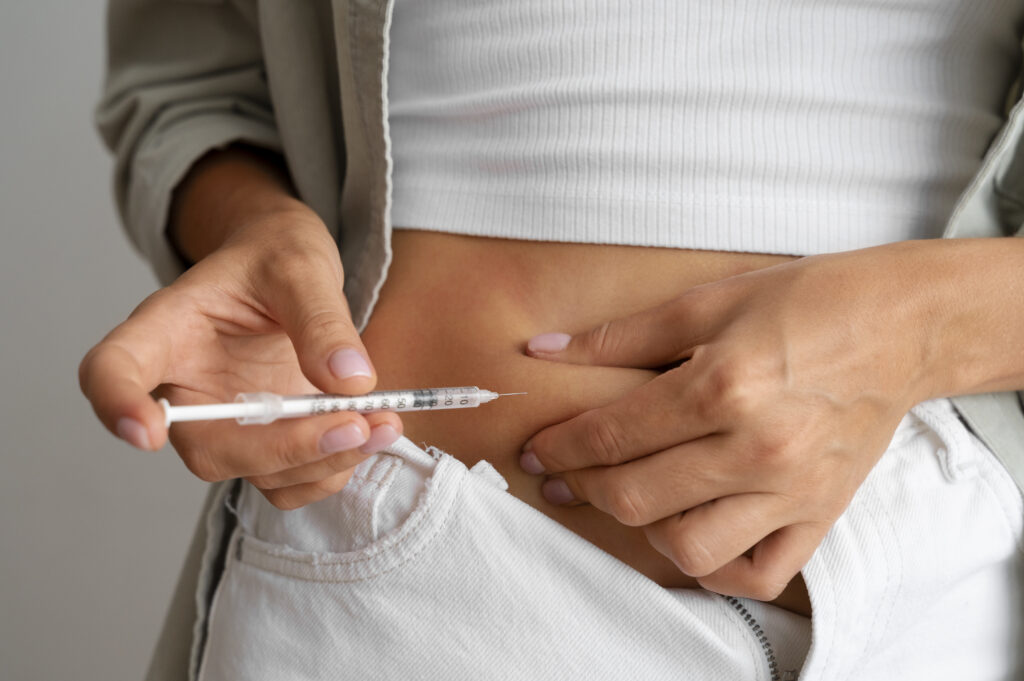Introduction: The Hidden Truth About Diabetes Care
Diabetes is often seen as just a blood sugar problem, but did you know that poor diabetes management can lead to heart disease, nerve damage, and even vision loss? The good news? With the right care, you can take control of your health and avoid complications.
This guide reveals proven strategies to manage diabetes effectively—covering diet, exercise, monitoring, and medical treatments. Whether you’re newly diagnosed or looking to improve your routine, these tips will help you live a healthier, more energetic life.
1. The Power of Food: What You Eat Matters More Than You Think!
Most people with diabetes focus on avoiding sugar, but the real key is balancing carbs, protein, and fiber.
Best Foods for Diabetes Control
✔ Leafy Greens & Non-Starchy Vegetables – Low in carbs, packed with nutrients.
✔ Whole Grains – Brown rice, quinoa, and oats help prevent blood sugar spikes.
✔ Lean Proteins – Chicken, fish, tofu, and lentils keep you full longer.
✔ Healthy Fats – Avocados, nuts, and olive oil improve insulin sensitivity.
🚫 Foods to Avoid: Processed snacks, white bread, sugary drinks, and deep-fried foods.
💡 Pro Tip: Eating high-fiber foods slows down sugar absorption and keeps your levels stable.
2. Exercise: The Underrated Game-Changer for Diabetes
Did you know that just 30 minutes of daily activity can lower your blood sugar levels instantly?
Best Exercises for Diabetes
🏃 Walking – A simple 30-minute walk after meals reduces blood sugar.
🏋️ Strength Training – Builds muscle, which helps burn glucose.
🧘 Yoga & Meditation – Lowers stress, preventing cortisol-induced sugar spikes.
🚀 Hack: Exercise after eating to use up sugar instead of storing it in your bloodstream.
3. Monitoring Blood Sugar: The Difference Between Control & Chaos
Tracking your sugar levels helps you understand what foods and habits work best.
When to Check Blood Sugar
✅ Morning (Fasting Blood Sugar) – Your body’s baseline level.
✅ Before Meals & Two Hours After Eating – To see how food affects you.
✅ Before & After Exercise – To ensure safe activity levels.
📊 Target Ranges:
🔹 Fasting: 80-130 mg/dL
🔹 After Meals: Below 180 mg/dL
💡 Smart Tip: Use a Continuous Glucose Monitor (CGM) to track blood sugar levels in real-time!
4. Medications & Insulin: Do You Need Them?
For many people, diet and exercise are enough. But in some cases, medication or insulin therapy is essential.
Common Diabetes Medications
💊 Metformin – Improves insulin sensitivity.
💉 Insulin Therapy – Helps if your body doesn’t produce enough insulin.
💊 SGLT2 Inhibitors & GLP-1 Agonists – Newer meds that help lower blood sugar & protect the heart.
🚀 Best Practice: Work with your doctor to find the right treatment plan based on your lifestyle and health goals.
5. Stress & Sleep: The Overlooked Factors That Affect Blood Sugar
Did you know that lack of sleep and stress can spike your blood sugar—even if you eat well?
How to Manage Stress & Improve Sleep
🧘 Deep Breathing & Meditation – Reduces cortisol (stress hormone) levels.
😴 7-9 Hours of Sleep – Helps your body process insulin effectively.
🚫 Limit Screen Time Before Bed – Blue light disrupts melatonin, making it harder to sleep.
6. Preventing Complications: Stay One Step Ahead
Long-term diabetes can damage your nerves, kidneys, and heart—unless you take action now.
✔ Eye Exams: Prevent diabetic retinopathy.
✔ Foot Care: Diabetes can cause nerve damage, so check for cuts and sores.
✔ Heart Health: Keep cholesterol & blood pressure in check.
🚀 Proactive Care Saves Lives! Preventing complications is easier than treating them later.
Conclusion: Take Control of Your Diabetes Today!
Diabetes care is not just about avoiding sugar—it’s about adopting a healthy lifestyle that keeps your blood sugar stable, prevents complications, and boosts your overall well-being.
💡 Small Changes = Big Results! Start today by eating smarter, moving more, tracking your levels, and managing stress.
👉 Want expert guidance? Talk to a Dr. Kiran – Book Appointment








